Edward Mulhare: Get To Know The 'Ghost and Mrs. Muir' and 'Knight Rider' Star
- Oops!Something went wrong.Please try again later.
- Oops!Something went wrong.Please try again later.
There are actors who prefer the stage or big screen, or have found success on the small screen and are perfectly happy with their lot. Edward Mulhare was not one of those actors; he would glide from one medium to another, even narrating documentaries with that fine smooth voice of his. Edward Mulhare was an actor who would go where the jobs were, and even when the play, movie or TV show wasn't of the quality he hoped for, you could always count on him to bring a level of class to any role he inhabited — those rules encompassing everything from The Ghost & Mrs. Muir to the original Knight Rider.
Edward Mulhare was born on April 8, 1923 in Cork City, County Cork, Ireland to John and Catherine Mulhare. While still a boy, he discovered a love of music and singing thanks to his father, as reported by Jack Holland in TV Time Magazine in 1969.
"When I was very small," Mulhare told Holland, "my father thought I should be a singer and taught me some baritone arias. I did have a rather good voice; I longed to be a singer and gave little thought to acting. I was dragged to it since I didn’t want to go, because there was no music in [acting]. But after the first act I didn’t care if it had music or not. I loved everything about it. The words, the mime, everything.”
Edward Mulhare's Early Days
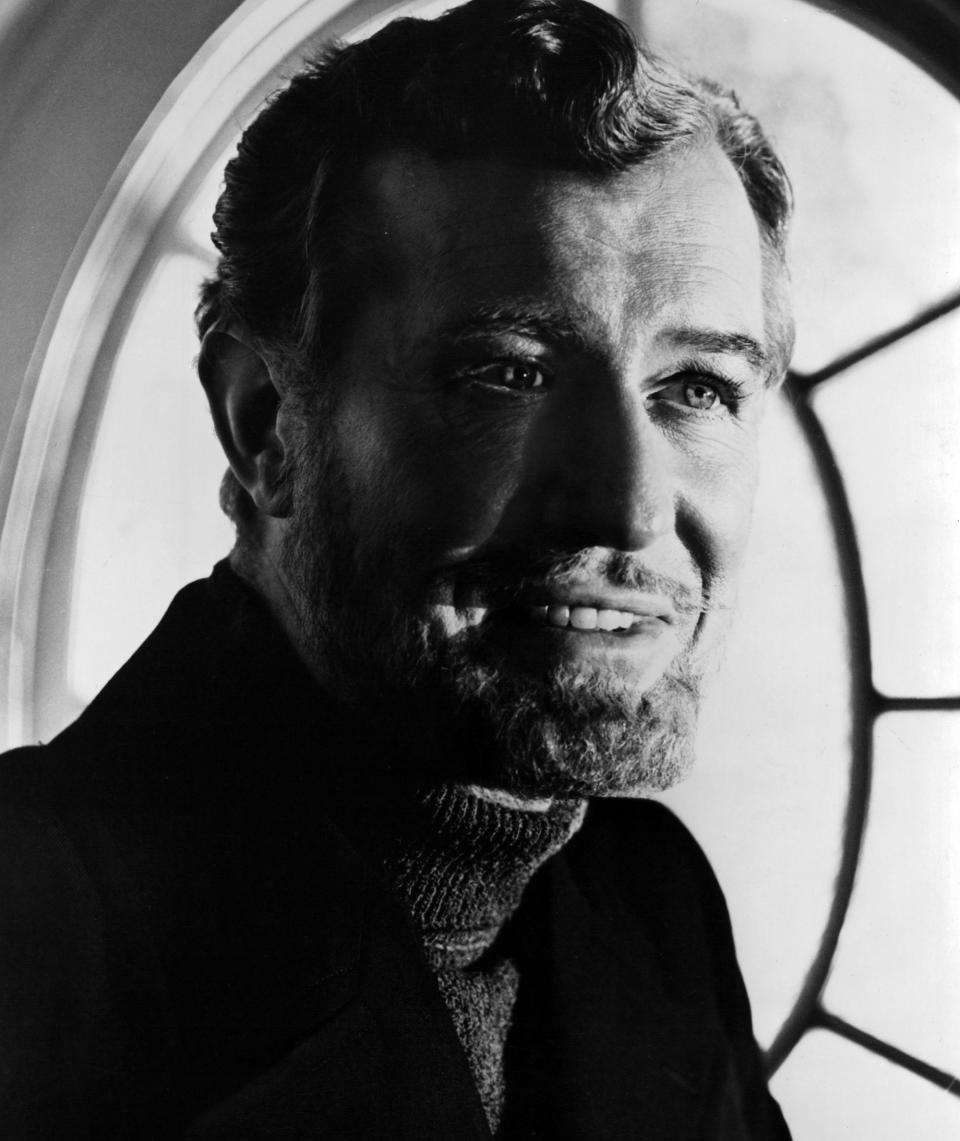
(PhotMichael Ochs Archives/Getty Images
Talking with the Press and Sun-Bulletin on May 26, 1959, Mulhare stated, “I started in an amateur society when I was about 16. I discovered that acting wasn’t just a game, and that we all had a lot to study. I studied and became single-minded about it and joined a professional company.”
RELATED: Richard Boone — Remembering the 'Have Gun Will Travel' Western Star
With the thespian drive deep in his bones, Edward Mulhare did some stage work in Dublin before moving to London in the late 1940s. Beverley Baxter of The Evening Standard singled out the Irish newcomer for praise on November 28, 1947 as “the best wild Irishman I have ever seen for a long time.”
A month later, the West London Press, Westminster and Chelsea News gave a quick notice for the new play The Patched Cloak, in which young Mulhare appeared “as a pugnacious, blarneying Earl of Kildare,” bringing humor to the role that pleasantly surprised critics and theatre goers.
This led him to the really big time. Working with such legendary thespians as John Gielgud and Orson Welles, young Edward eventually trodded the boards in the Laurence Olivier production of Othello in 1951. The Evening Dispatch of June 25, 1953 reported that he had spent a season at the Alexandra in Birmingham, in which he became popular with audiences and critics alike. After a short tour in Africa, he returned to the “Alex.”
By this time Mulhare had begun working in motion pictures and television. His first film on IMDB is listed as Captain Boycott in a non-credited role. In 1955 he starred in Hill 24 Doesn’t Answer.
British TV
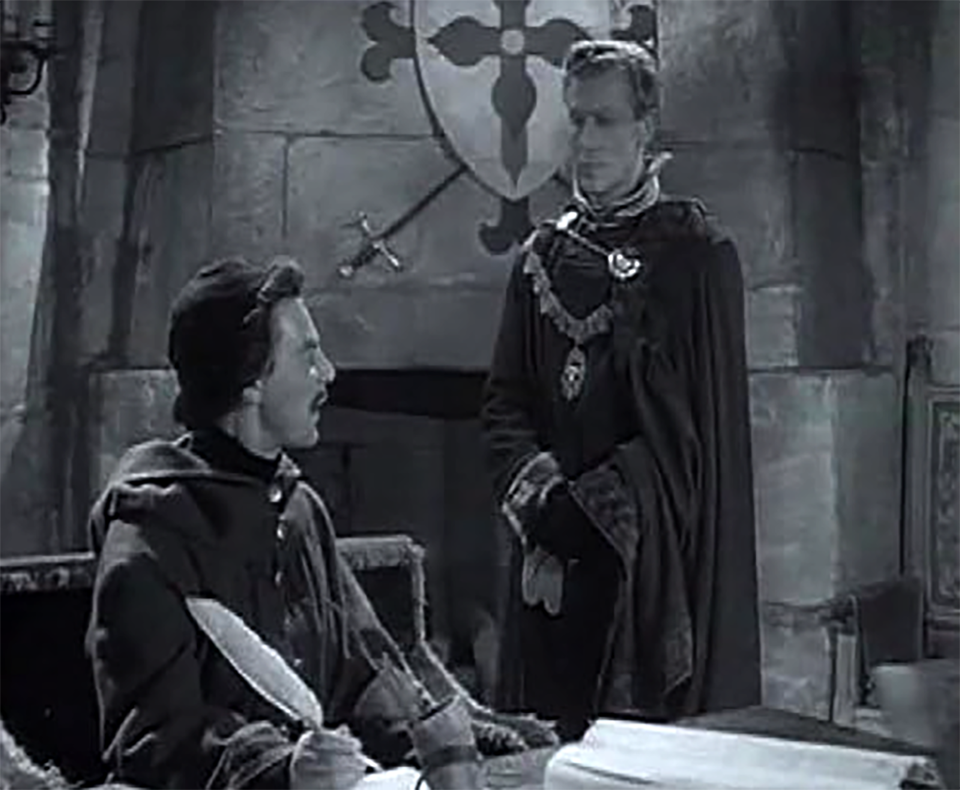
©ITC/IMDb
Plenty of British television followed with BBC Sunday-Night Theatre, No Man's Land and The Condemned. But the most notable TV work for Edward Mulhare came with The Adventures of Robin Hood, which ran from 1955-1960 and starred Richard Greene as the titular outlaw.
He appeared in nine episodes from 1956 to 1957, playing a variety of characters from "Courtier," "Foppish Lord,” a couple of outlaws, “First Soldier,” and a gentleman named “Ulf.” After a while the actor started getting itchy to move on, and his equine co-star in one episode gave him the perfect excuse to do just that.
“Well,” Mulhare said, “it was a blessing in disguise as I was getting tired with the series … bored is a better word. Anyway, I was playing the part of a Norman Earl … you know the kind. I had to ride a horse called Patience, but this day she forgot what the name meant. She hadn’t been ridden for some time, so when the cameras turned, she bolted off and headed for some tall, thick briar bushes. I ducked my head, crouched down, and hoped the horse would get by them, but she went right into them and I was cut to pieces by the briar. When the horse finally stopped, I turned around and walked her back.”
It was definitely time to move on.
Broadway Bound
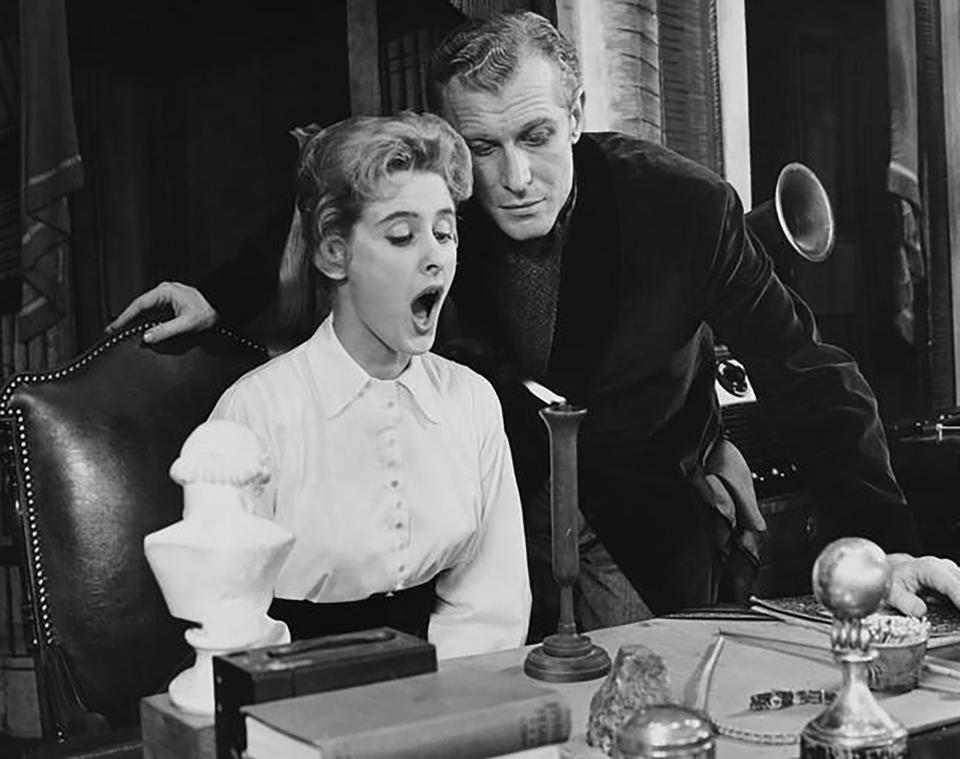
©mcny.org
One of the most famous Broadway shows of all time, My Fair Lady, starred the famous (and somewhat infamous) Rex Harrison, who needed a vacation after his numerable performance with the challenging play. The St. Louis Globe of February 3, 1957 dubbed Mulhare “the fighting Irishman” as the actor found himself embroiled in a tense theatrical situation after being chosen to replace the beloved Harrison, whom he had been understudying with for the lead role of Professor Henry Higgins.
RELATED: Guy Williams: Here's What Happened to the 'Zorro' and 'Lost in Space' Star
According to the St. Louis Globe Democrat published on the same day, Actor’s Equity, the stage actor’s and managers union, balked at the Irish-born actor taking on the role since he was not only an alien, but unknown in America without a prerequisite amount of U.S. acting roles.
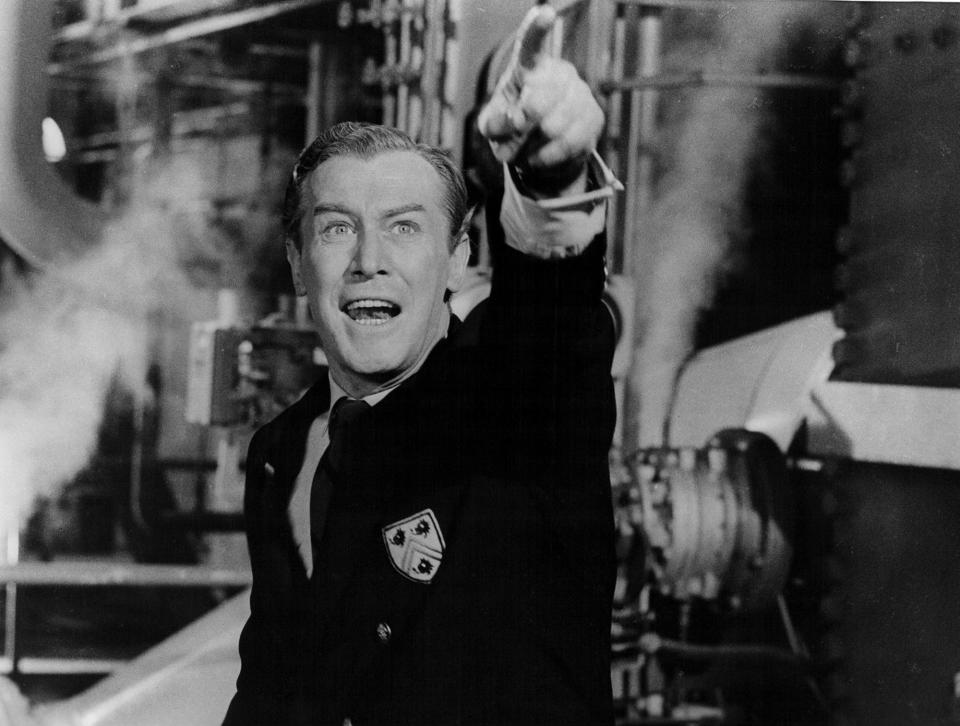
20th Century-Fox/Getty Images
“The part isn’t exactly new to me,” he told the Democrat. “After all, I’ve been in four productions of (George Bernard) Shaw’s, including Pygmalion that My Fair Lady is based upon. And I don’t expect any trouble even though this is the first musical I’ve ever been in. I’m not going to sing anymore than Rexy. Actually, I don’t believe the lyrics of the tunes I have were meant to be sung.”
Eventually, a special arbitrator decided against Actor’s Equity, saying the organization’s rule was in effect after My Fair Lady began its long and successful run, so the Irish “alien” got on the Broadway stage and ran with the role, charming everyone who saw the production.
After moving to America, Mulhare began doing the rounds in episodic television and TV movies. Additionally, there were more feature film roles as suave villains in the thriller Signpost to Murder with Joanne Woodward and Stuart Whitman, the WWII drama Von Ryan’s Express, which featured Frank Sinatra and Trevor Howard; and the spy spoof Our Man Flint, which also starred James Coburn and Lee J. Cobb.
Edward Mulhare in The Ghost & Mrs. Muir
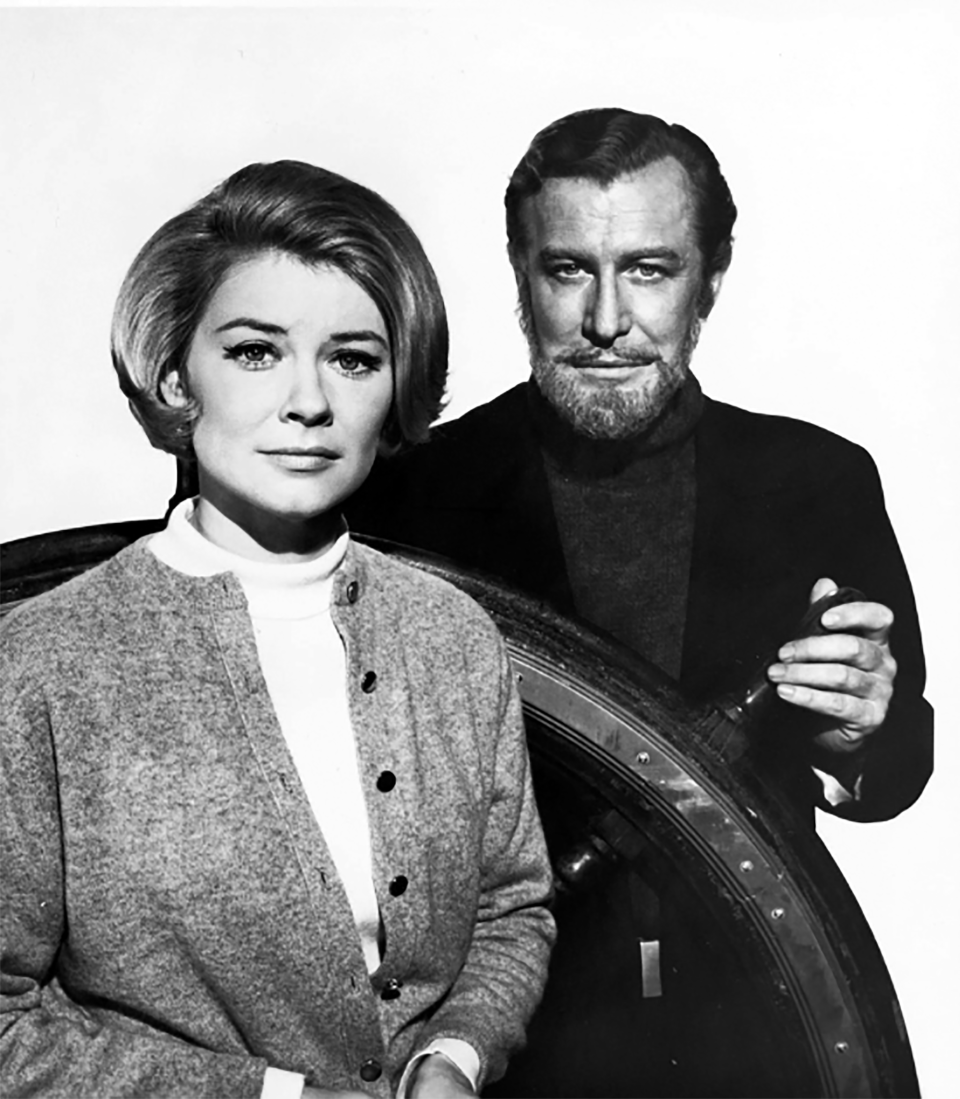
©20th Television/IMDb
Then came his most-fondly remembered role in The Ghost & Mrs. Muir. Recalling his time on the show to staff writer Joyce Meyer of the Daily Illini from March 29, 1978, the actor said he enjoyed the scripts for the first season and decided to go for it, although he admitted boredom began to set in during season two due to lackluster writing.
“I had to be on the set from 7a.m. to 7p.m. everyday, Monday through Friday,” he said. “Unless there is some kind of mental stimulus, one can’t keep doing that sort of thing … One has more control on the stage. It’s a one-on-one relationship (between actor and audience). I prefer the stage to anything else."
Even though the series only ran for two seasons, first on NBC and then on ABC, the role of the spirit of the good Captain Daniel Gregg helped cement Mulhare in a charming role in a well-made show that many considered to be cancelled far too soon.
Based on the 1947 film of the same name, it stars Hope Lange as Carolyn Muir — widow and single mother — who rents Gull Cottage, which happens to be haunted by Gregg, a 19th century sea captain who died in 1869. The focus is on the connection between the two of them.
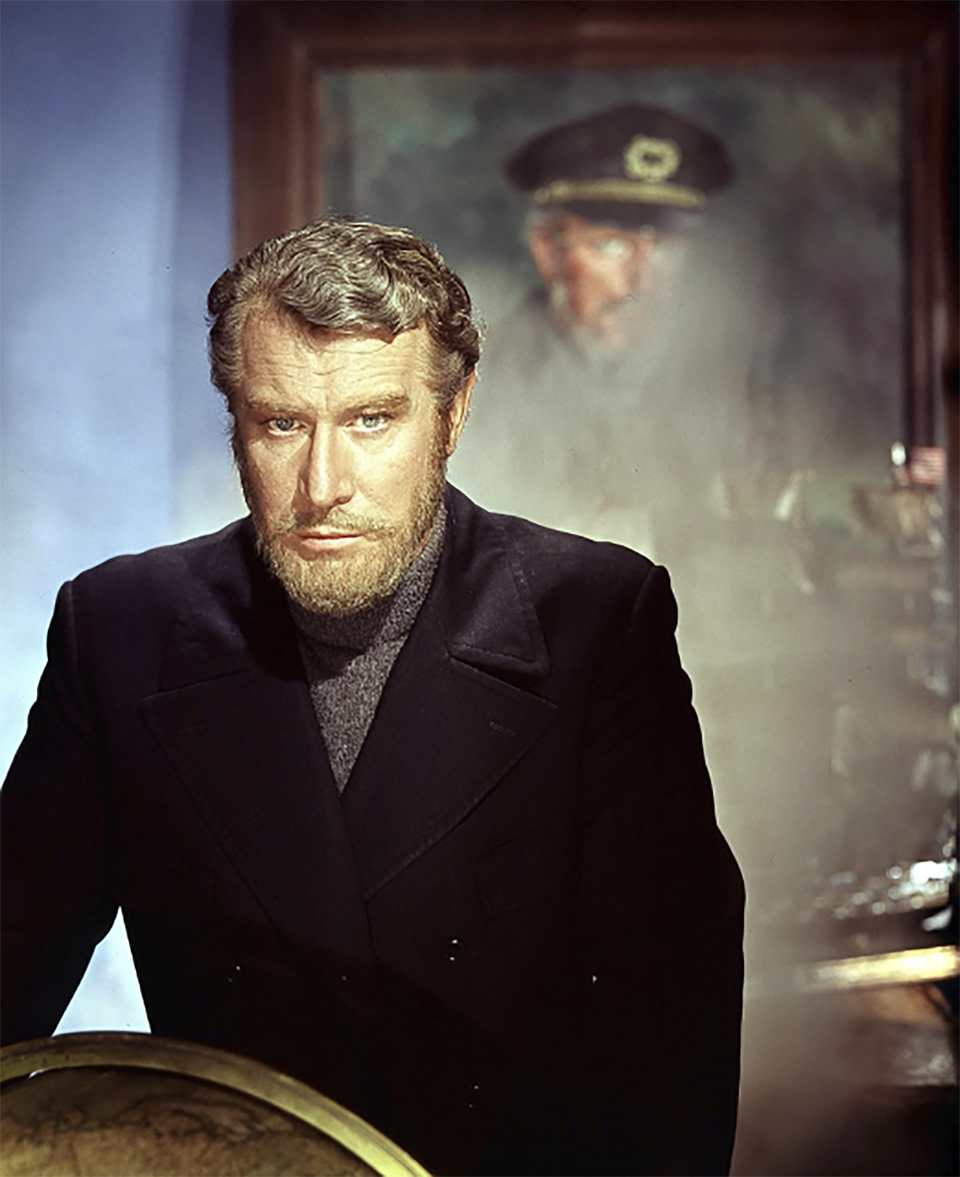
©20th Television/IMDb
Every actor has to face his or her demons and for Edward Mulhare on The Ghost & Mrs. Muir, his particular problem was that beard. Although he cut quite a fine figure with the facial hair, the time restraints of making a weekly series precluded him from growing his own. He told columnist Lou Cadrone at The Evening Sun on February 19, 1969 that he had to sit for two hours in the make up chair for the addition of the fake whiskers to be glued to his handsome countenance.
“I nap occasionally,” the actor replied to Cadrone when asked about the excessive down time, “but this isn't always possible. What bothers one more is that I have to wear the thing for 12 hours each day, and that can drive you mad. It is most maddening when I have three or four hours (in which to do nothing) as the other players do their scenes.” And taking off the beard, Cadrone reported, was a painful process as the spirit gum "leaves his face sore at best and partially skinned at worst.”
“They want to do too much physical comedy,’ the actor continued. “They’ve been trying to splash things on me, for instance. I tell them you can’t splash things on a ghost. I’ve won some battles, but not all.”
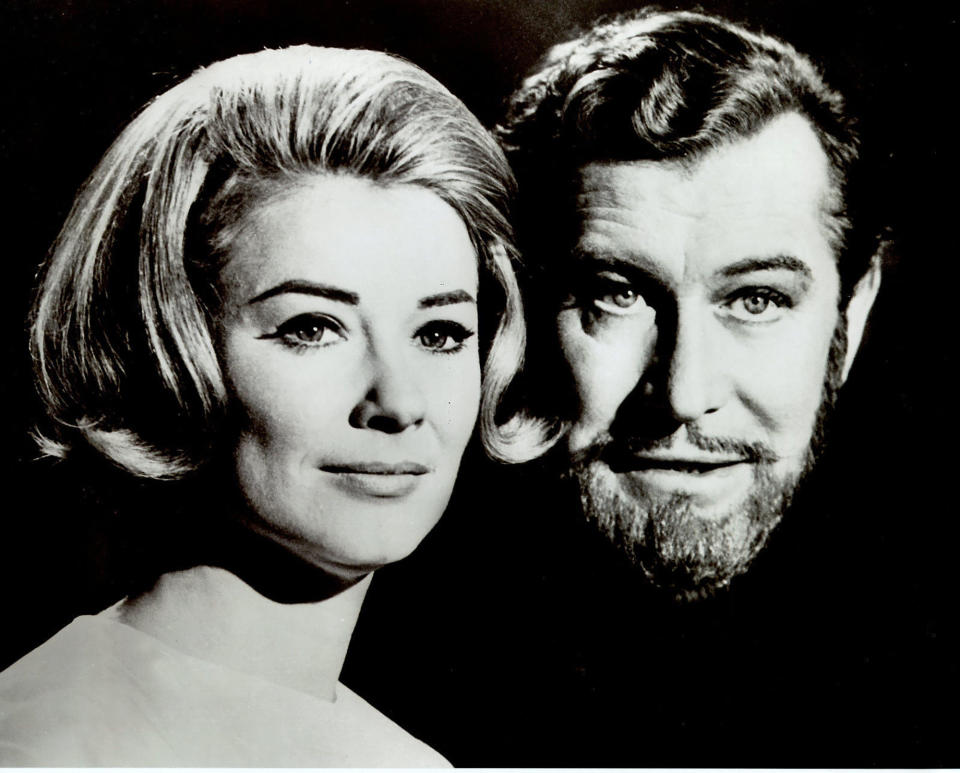
©20th Television/courtesy MovieStillsDB.com
After the show ran its course in 1970, Mulhare moved back to the stage with a week-long performance at the Lakewood Theatre in William Douglas Home’s London success, The Secretary Bird, co-starring award-winning actress Inga Swenson, later to play foil to Robert Guillaume’s popular TV series character of the 1980s, Benson.
During later days of the Cold War, the actor toured Russia in My Fair Lady, as reported by The Daily Illini of March 29, 1978. Mulhare was thrilled for the opportunity as he told staff writer Joyce Meyer; “It was a gratifying experience … We should be sending more of this kind of thing abroad. This is what creates understanding. Of course, it was not like playing to a native English-speaking audience … the play on words was too fast. But it showed an example of American art. The Americans’ greatest contribution is the musical. America does this better than anyone else.”
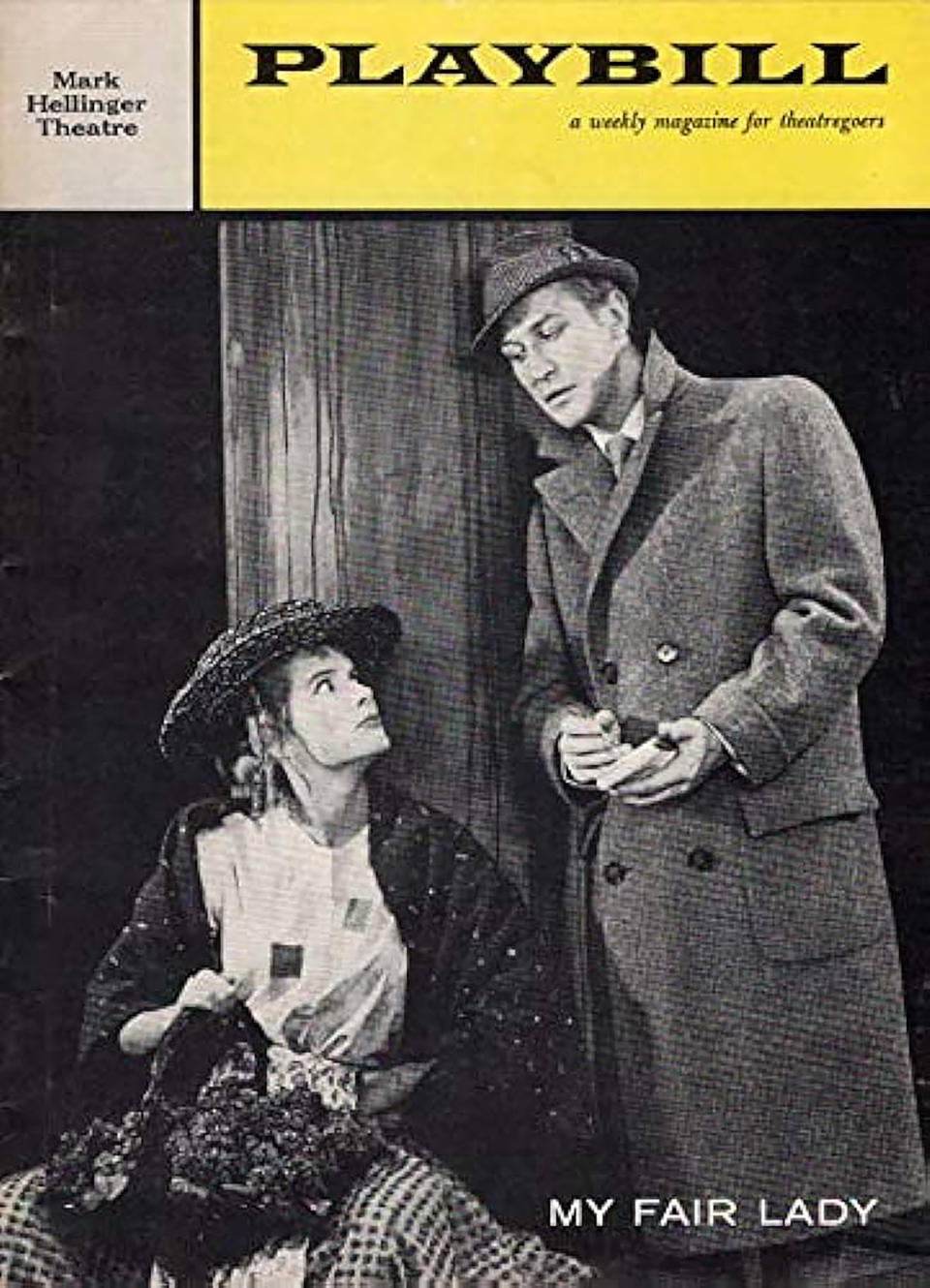
©Playbill
Meyer asked Mulhare if, after 2000 performances on Broadway, he wasn’t simply tired of Henry Higgins, Eliza Doolittle and all the rest of it. But he rebuffed the idea, telling her, “I haven’t done it for a very long time, and the material is so miraculously joyful. Eliza becomes an independent human being.”
The actor pointed out that by the 1970s, Eliza Doolittle just might have become a bit of an activist for Women’s Lib. “She outgrows Higgins. Her openness allows her to grow to the point she takes off her armor with him. He never takes off his armor with her.”
Throughout the 1970s, he continued to be a familiar face on TV with appearances in such classic shows as Cannon, The Streets of San Francisco, The F.B.I., Search, and Battlestar Galactica. In 1982, he had a featured role in director Hal Needham’s silly Megaforce, which was so bad that it got the Rifftrax treatment, but has since become a bit of a cult movie of the “so bad, it’s good” variety. And then came Knight Rider.
Edward Mulhare in Knight Rider
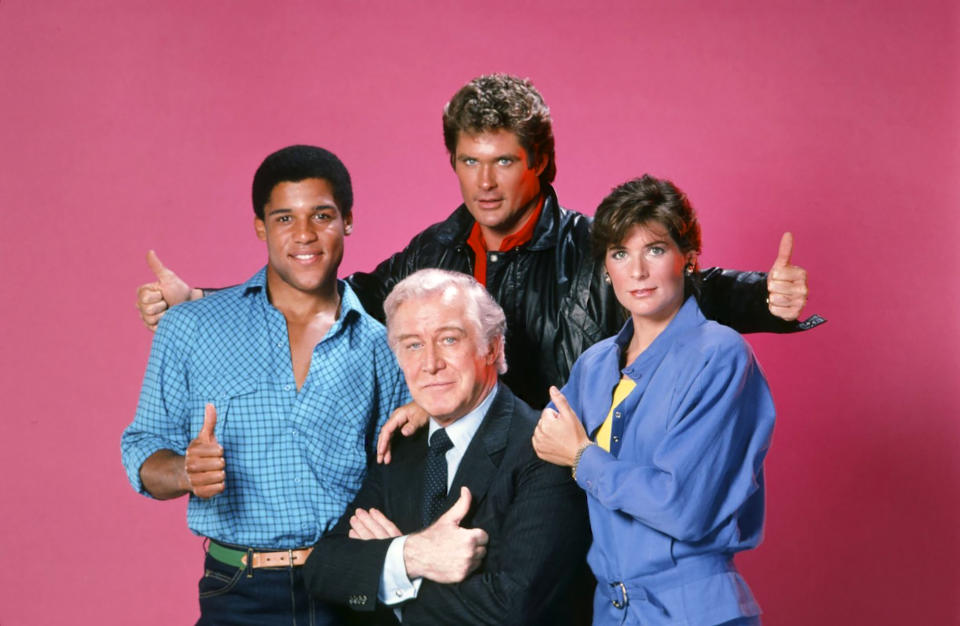
©NBCUniversal/courtesy MovieStillsDB.com
From 1982-1986, Mulhare played Devon Miles, backing up co-stars David Hasselhoff and Patricia McPherson. Together this trio of crime fighters used K.I.T.T., an indestructible AI-powered super car, with voice provided by Willam Daniels, later to play Mr. Feeny in the 90’s sitcom, Boy Meets World.
Knight Rider filled the 1980s airwaves with action and humor, along with such shows as Simon and Simon, The A-Team, Airwolf, Magnum, P.I., Hardcastle and McCormick and so many others that TVs fairly exploded with throughout the decade, barely able to contain all the fist fights, car chases and explosions the decade had to offer. In the February 11, 1983 edition of the Austin American-Statesman, writer Diane Holloway quotes Mulhare as saying, “I love the people I work with, but I can’t say I love the bits of dialogue they give me from time to time.
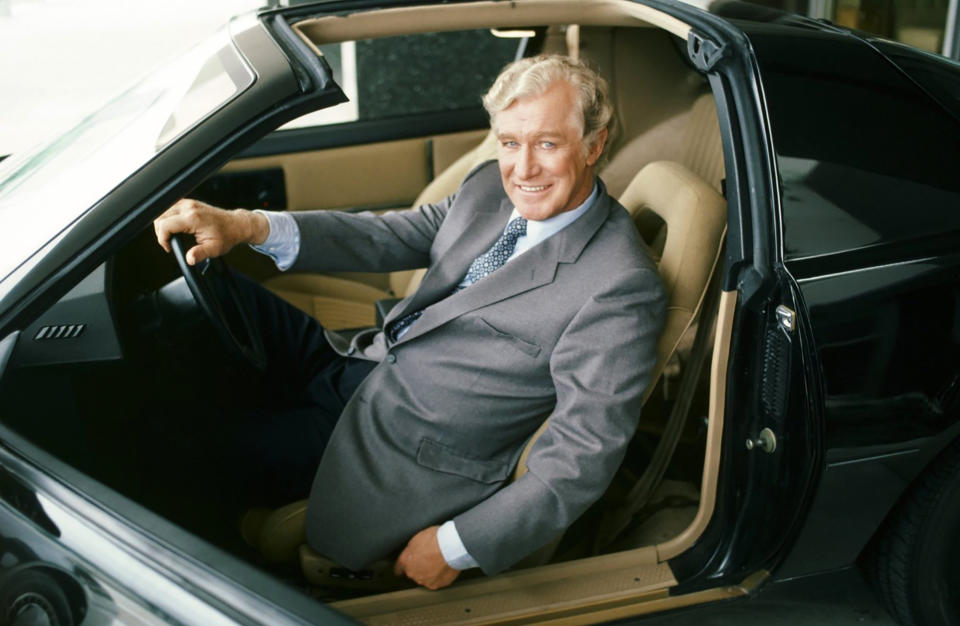
©NBCUniversal/courtesy MovieStillsDB.com
“I was very pleased with the pilot,” he continued, “[but] the character developed an extraordinary pomposity. I was forever looking down my nose as if I were smelling something rancid — which I found excessively boring.”
After the cancellation of Knight Rider, Mulhare continued TV work by hosting the creepy-themed series Secrets and Mysteries (aka, Secrets of the Unknown), which ran for a season. In the 1990s. His roles slowed with appearances in Knight Rider 2000, in which he reprised his character from the original series; he did a TV movie based on the 1980s show Hart to Hart, subtitled Secrets of the Hart; provided the voice of villainous Spencer Smythe for an episode of Spider-Man The Animated Series, and worked with David Hasselhoff one more time in an episode of Baywatch Nights.
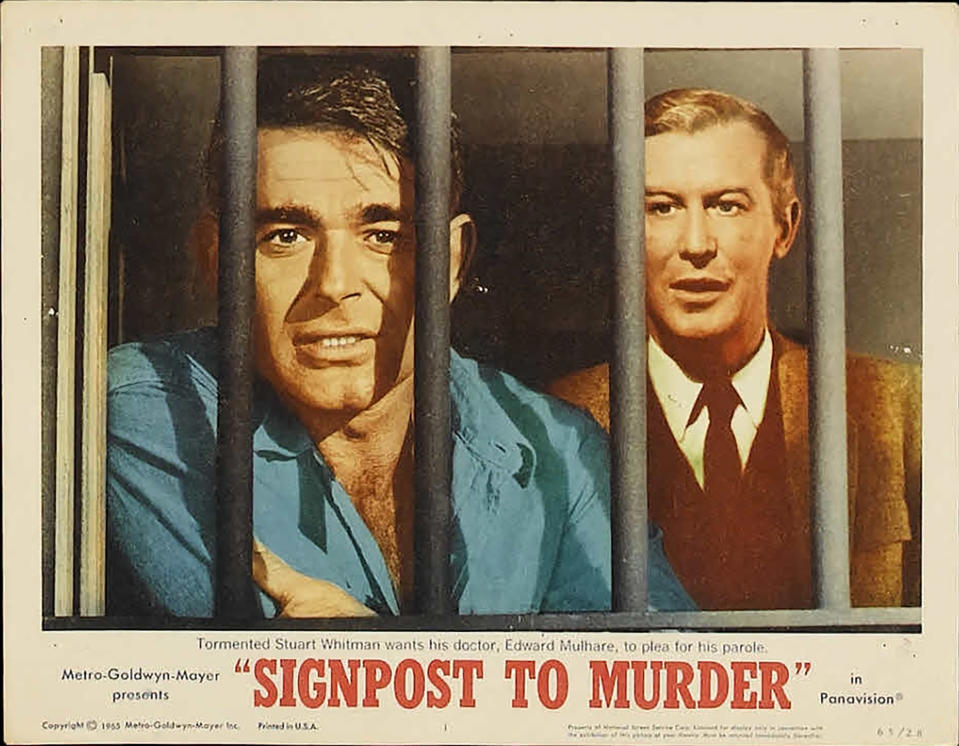
©MGM/courtesy MovieStillsDB.com
His final film, Out to Sea, featuring Jack Lemmon and Walter Matthau, was released posthumously in 1997. Mulhare was reportedly offered a cameo in Mike Meyers’ Austin Powers: International Man of Mystery, but the actor had to bow out due to his health.
After a life-long smoking habit, the 74-year-old Edward Mulhare succumbed to lung cancer on May 24, 1997. He was taken home to Cork City, Ireland and buried at St. Joseph’s Cemetery on Tory Top Road. Upon receiving news of the actor’s death, the reboot series Team Knight Rider dedicated the episode “K.R.O.” to Mulhare and his Knight Rider legacy.
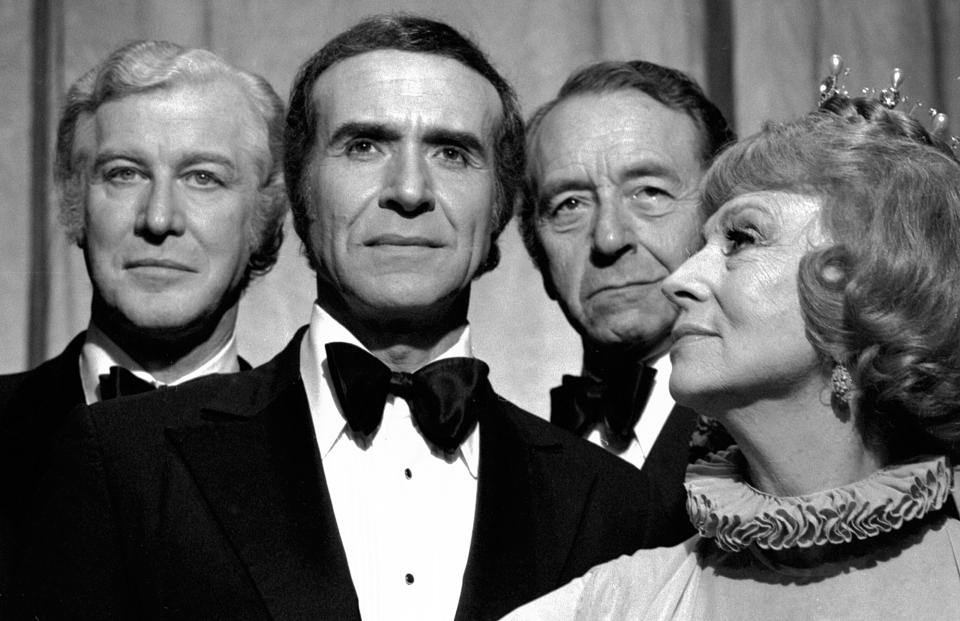
Jack Mitchell/Getty Images
The Guardian in their May 29, 1997 issue called Mulhare “the Archetypal Englishman,” and in the May 25 issue of the Los Angeles Times, long-time friend Peggy Forrest reported that right up to the end the actor was “an avid reader, often devouring a book in one day, and was fascinated by computers,” including the five that he tinkered with in his home. “He was brilliant to the end,” Forrest told the outlet. “That wit and humor and intelligence went just to the last minute. He was waking up from deep comas … and saying something that would blow everybody away.”
Enjoy more Classic TV coverage from Woman's World

